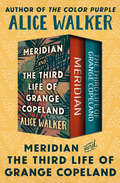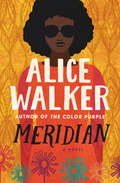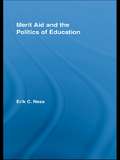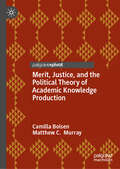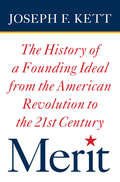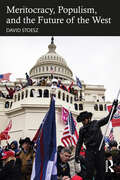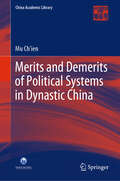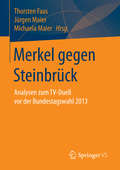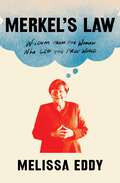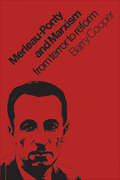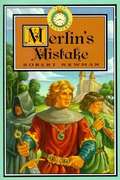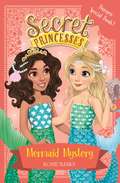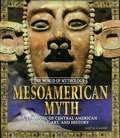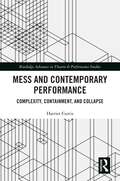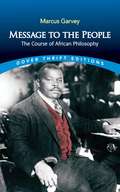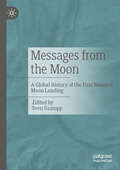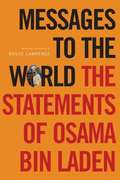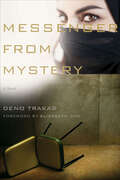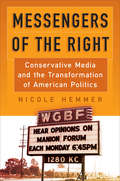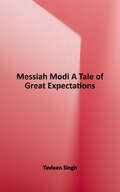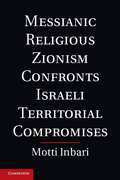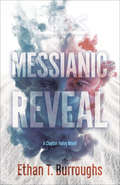- Table View
- List View
Merging Interests: When Domestic Firms Shape FDI Policy (Business and Public Policy)
by Sarah Bauerle DanzmanWhy do governments open their economies to multinational enterprises (MNEs)? Some argue democratic forces promote this openness, but many citizen groups view multinational business with suspicion. Using quantitative and qualitative analysis, Bauerle Danzman demonstrates how large domestic firms push to liberalize foreign direct investment (FDI) policies to ameliorate financing constraints, often to the detriment of smaller competitors. MNE entry comes with substantial risks, such as higher labour costs and increased productivity pressures, so well-connected domestic firms will prefer to limit access to local markets when the costs of debt financing are relatively low. However, when local environments make debt financing increasingly expensive, firms will be more willing to dismantle restrictive investment policies so that they may overcome liquidity constraints with equity financing from abroad. Bauerle Danzman includes comparative analysis of Malaysia and Indonesia from 1965–2016 to illustrate how governments undertake investment policy reform, and to indicate the interest groups that influence the outcomes of these regulatory changes.
Meridian and The Third Life of Grange Copeland: The Color Purple; Meridian; And The Third Life Of Grange Copeland
by Alice WalkerThe highly acclaimed first two novels by the Pulitzer Prize–winning author of The Color Purple and &“a lavishly gifted writer&” (The New York Times Book Review). The first African American woman to win a Pulitzer Prize in 1983 for The Color Purple—which also won the National Book Award and was adapted into both an award–winning film starring Whoopi Goldberg and a Tony Award–winning Broadway musical—New York Times–bestselling author Alice Walker is without question &“one of [our] best American writers&” (The Washington Post). Before her success with The Color Purple, Walked penned the two powerful and unforgettable novels collected here. Meridian: This &“classic novel of both feminism and the Civil Rights movement&” is the story of Meridian Hill, who, as she approaches the end of her teen years, has already married, divorced, and given birth to a son (Ms. Magazine). She&’s looking for a second chance, and at a small college outside Atlanta, Georgia, in the early 1960s, she becomes involved in the Civil Rights movement. So fully does the cause guide her life that she&’s willing to sacrifice virtually anything to help transform the conditions of a people whose subjugation she shares. &“Beautifully presented and utterly convincing.&” —The New Yorker &“A fine, taut novel . . . Remarkable.&” —The New York Times Book Review The Third Life of Grange Copeland: In Walker&’s debut novel, Grange Copeland, a deeply conflicted and struggling tenant farmer in the Deep South of the 1930s, leaves his family and everything he&’s ever known to find happiness and respect in the cold cities of the North. This misadventure, his &“second life,&” proves a dismal failure that sends him back where he came from to confront his now-grown-up son&’s disastrous relationships with his own family, including Grange&’s granddaughter, Ruth Copeland, a child Grange grows to love. Love becomes the substance of his third and final life. He spends it in devotion to Ruth, teaching and protecting her—though the cost of doing so is almost more than he can bear. &“[A] splendid novel.&” —Chicago Tribune &“A solid, honest sensitive tale . . . leavened by those moments of humor and warmth that have enabled men and women to endure so much tragedy.&” —Chicago Daily News
Meridian: The Color Purple; Meridian; And The Third Life Of Grange Copeland (Sparknotes Literature Guide Ser.)
by Alice Walker&“A classic novel of both feminism and the Civil Rights movement&” in 1960s Atlanta by the Pulitzer Prize–winning author of The Color Purple (Ms.). As she approaches the end of her teen years, Meridian Hill has already married, divorced, and given birth to a son. She&’s looking for a second chance, and at a small college outside Atlanta, Georgia, in the early 1960s, Meridian discovers the civil rights movement. So fully does the cause guide her life that she&’s willing to sacrifice virtually anything to help transform the conditions of a people whose subjugation she shares. Meridian draws from Walker&’s own experiences working alongside some of the heroes of the civil rights movement, and the novel stands as a shrewd and affecting document of the dissolution of the Jim Crow South. This ebook features an illustrated biography of Alice Walker including rare photos from the author&’s personal collection.
Merit Aid and the Politics of Education (Studies in Higher Education)
by Erik C. NessWhile a substantial number of studies have evaluated the effects of merit aid programs, there is a surprising lack of any systematic consideration of how states determine eligibility criteria for these scholarships. The selectivity of merit aid eligibility criteria can be as important as whether or not such programs are adopted. If, for example, merit aid programs have broad, easily-attained initial eligibility criteria, then a large proportion of high school graduates, including low-income and under-represented students, will gain eligibility. On the other hand, if the criteria are more rigorous, then a smaller proportion of students, likely those already planning to attend and with the means to afford college, will be eligible. Thus, this innovative book - the first to deepen the descriptive and conceptual understanding of the process by which states determine merit aid scholarship criteria - is crucial to understanding merit aid's success and failures at fulfilling the promise of education.
Merit, Justice, and the Political Theory of Academic Knowledge Production
by Matthew C. Murray Camilla BoisenAcademia has long established itself as an institution of knowledge and ideas. Facing pressure, many academic fields and institutions have turned their attention, singularly and collectively, to the task of what to do to rectify the causes of under-representations both academic knowledge itself and who gets to be an academic producer of knowledge. Boisen and Murray argue that simply solving the contemporary symptoms of inequity in ideas, knowledge production and the academy is not enough. Political Theory must be used to analyze why dominant ideas and institutions, namely merit and the resulting meritocracy and meritocratic procedures, were given power in the first place. In using political theory and theories of justice, the book argues that academia must radically shift rather than procedurally reform these methods of evaluation in order to achieve a more coherent approach to diversity in ideas, academic knowledge producers and academic knowledge production, which are necessary to bring about other forms of social change and reform in our larger world. In questioning the ideals and the use of rival ideals to temper flawed concepts, the present motivations and justifications for producing academic knowledge can be relegated as political tools, allowing true meaningful reform. Boisen and Murray show how contemporary crises in academia around diversification of perspectives can only be solved by considering the justifications of academic knowledge production, and the inherent risk of retaining the established competitive and presumptively ‘natural’, but ultimately biased, methods of deriving academic authority.
Merit: The History of a Founding Ideal from the American Revolution to the Twenty-First Century (American Institutions and Society)
by Joseph F. KettThe idea that citizens' advancement should depend exclusively on merit, on qualities that deserve reward rather than on bloodlines or wire-pulling, was among the Founding ideals of the American republic, Joseph F. Kett argues in this provocative and engaging book. Merit's history, he contends, is best understood within the context of its often conflicting interaction with the other ideals of the Founding, equal rights and government by consent. Merit implies difference; equality suggests sameness. By sanctioning selection of those lower down by those higher up, merit potentially conflicts with the republican ideal that citizens consent to the decisions that affect their lives.In Merit, which traces the history of its subject over three centuries, Kett asserts that Americans have reconciled merit with other principles of the Founding in ways that have shaped their distinctive approach to the grading of public schools, report cards, the forging of workplace hierarchies, employee rating forms, merit systems in government, the selection of officers for the armed forces, and standardized testing for intelligence, character, and vocational interests. Today, the concept of merit is most commonly associated with measures by which it is quantified.Viewing their merit as an element of their selfhood-essential merit-members of the Founding generation showed no interest in quantitative measurements. Rather, they equated merit with an inner quality that accounted for their achievements and that was best measured by their reputations among their peers. In a republic based on equal rights and consent of the people, however, it became important to establish that merit-based rewards were within the grasp of ordinary Americans. In response, Americans embraced institutional merit in the form of procedures focused on drawing small distinctions among average people. They also developed a penchant for increasing the number of winners in competitions-what Kett calls "selection in" rather than "selection out"-in order to satisfy popular aspirations. Kett argues that values rooted in the Founding of the republic continue to influence Americans' approach to controversies, including those surrounding affirmative action, which involve the ideal of merit.
Meritocracy, Populism, and the Future of Democracy
by David StoeszThis book explores the fundamental shift that has occurred in America and Britain as elites accumulate unprecedented capital and influence and a meritocracy has emerged to manage national affairs, a change that means opportunity, affluence, and power have migrated away from most of the population. Arguing the following four points: Geography accounts for the accumulating influence of metropolitan regions, at the expense of smaller cities and rural communities of the heartland. Occupational groups, particularly lawyers, physicians, and financiers, have constructed professional cartels to secure rents at the expense of the prosperity of the public. Think tanks and universities have become the necessary pathways to attain leadership in public affairs. The internationalization of commerce has contributed to a parallel network of economic institutions and think tanks sharing ideas and personnel to lobby for policies favorable to their sponsors. Stoesz connects present and past to look at the progressive-era, the history of professions, and questions of welfare state reform, post-neoliberalism, and marketization. His book will be of great interest to students of sociology, political science, public administration, social policy, history, and economics. Scholars in think tanks and universities as well as political consultants will also find it invaluable.
Merits and Demerits of Political Systems in Dynastic China (China Academic Library)
by Mu Ch'ienBy comparing the political systems in different dynasties, this book illustrates the continuous evolution of traditional Chinese political systems, and evaluates the merits and demerits of the political systems in different dynasties. It also provides detailed records of the evolved government organizations, the names and functions of various offices, the titles and responsibilities of officials. The book consists of five chapters, each of which focuses on one of the five dynasties respectively -- Han, Tang, Song, Ming, and Qing, and a concluding summary. Combining historical facts and anecdotes from history to make the discussion straightforward, interesting, and easy to understand, this is an ideal book for anyone interested in the history of China, particularly its traditional political systems.
Merkel gegen Steinbrück
by Thorsten Faas Jürgen Maier Michaela MaierDie Beiträge des Buches basieren auf einer experimentell angelegten, mehrwelligen Studie im Kontext des TV-Duells zwischen Angela Merkel und Peer Steinbrück sowie des Dreikampfes zwischen Rainer Brüderle, Gregor Gysi und Jürgen Trittin im Vorfeld der Bundestagswahl 2013. Ca. 350 Bürgerinnen und Bürger verfolgten die Debatten an den Universitäten Mainz und Koblenz-Landau. Die Daten wurden per Fragebögen sowie den Einsatz von Real-Time-Response-Techniken gewonnen. Daneben wurde eine inhaltsanalytische Auswertung des Duells selbst, aber auch begleitender Twitter-Beiträge während des Duells durchgeführt. Die Beiträge analysieren, wie sich die Kandidaten in den Diskussionen positioniert haben und welchen Einfluss die Diskussionsrunden letztlich auf den Wahlkampf und die Wahl 2013 gehabt haben.
Merkel's Law: Wisdom from the Woman Who Led the Free World
by Melissa EddyIn the vein of Notorious RBG, a fun and inspiring biography filled with lessons from the most powerful woman in the world, based on more than a decade&’s worth of coverage of German Chancellor Angela Merkel from New York Times Berlin correspondent Melissa Eddy.Angela Merkel is a boss. A trailblazer. An icon of colorful suits. Formerly the new leader of the free world. With an entire hand gesture named after her (the &“Merkel Diamond&”) and celebrated in a viral meme for sparring with Trump, Angela Merkel spent a decade economically and politically revitalizing her country. The first woman chancellor of Germany and one of the longest-serving European leaders ever, Merkel&’s quiet resolve, calculated confidence, and extreme privacy around her personal life have made her a feminist role model for the ages. Merkel&’s Law is a revelatory look at an unlikely vanguard, and at the country she led for sixteen years. No one is better positioned than New York Times Berlin correspondent Melissa Eddy to pull back the curtain on the woman who engineered Germany&’s rise to wealth, power, and an economy worth 3.8 trillion in USD. Drawing upon an unparalleled well of sources close to Merkel, Merkel&’s Law traces her childhood in East Germany as the daughter of a clergyman, her meteoric rise to power, and her more recent public acclaim—as well as the numerous setbacks she faced along the way both from political rivals and from men in her own party who scoffed at her ambition. Painting a portrait of a political genius, savvy businesswoman, and model for modern power, Merkel&’s Law is not only the story of her life, but the lessons we can learn from it.
Merleau-Ponty and Marxism: From Terror to Reform
by Barry CooperInfluenced by Kojève's interpretation of Hegel as well as his direct political experience of the second world war, Maurice Merleau-Ponty abandoned the religious and philosophical position he had assumed in the 1930s and turned to Marxism. This is the first critical study of the French philosopher's political ideas and the context in which they evolved. In its origin and its development, Merleau-Ponty's political thought expressed a subtle dialectic between ongoing political events and the apparent truths of Marx's analysis. With the onset of the cold war, the discovery of the Soviet concentration camps, the repression of Eastern Europe, the Algerian crisis, and the founding of the Fifth Republic, Merleau-Ponty began to take a critical look at Marx's ideas of the genesis of humanism in the light of these disturbing political realities. His reconsideration of the basis of Marxism and his conclusion that it had lost contact with history led to a fundamental reorientation of his attitudes. No longer sympathetic to the use of violence to end violence, he criticized Sartre's external justification of communist violence as 'magical' and advocated instead a new liberalism combining parliamentary democracy with an awareness of the social problems of industrial capitalism.Barry Cooper's study of this important contemporary thinker gives context for an understanding of Merleau- Ponty's politics and, in so doing, brings together the complex issues and ideas that have shaped modern European political and philosophical thought.
Merlin's Mistake
by Robert NewmanWhen Merlin mistakenly endows him with the gift of knowing the future, Tertius finds it more burdensome than useful when all he really wants is to be a knight.
Mermaid Mystery: Book 17 Bumper Special (Secret Princesses #17)
by Rosie BanksA magical new series where best friends become Secret Princesses!Charlotte and Mia are delighted to meet the mermaids who live in the lagoon in the grounds of Wishing Star Palace. But in the middle of all the fun, the lagoon suddenly turns a murky, toxic green. Nasty Princess Poison is up to her old tricks again! Charlotte and Mia have to grant four more wishes to break the evil curse.Freya wishes to find the buried treasure on her family's treature hunt. Can Charlotte and Mia grant Freya's wish and solve the mermaid mystery?This book is a special longer length for even more magical fun.
Merriman Smith's Book of Presidents: A White House Memoir
by Timothy Smith"Espying him waiting with other reporters at the Hyannis Armory, [John F.] Kennedy said, 'If you're here, Smitty, I guess I've really been elected!'" In the foreword, Robert Donovan tells this story about his old friend, and continues: "For a president, in other words, Merriman Smith came with the job. What was unique about Smith was that through skill, opportunity, prodigal exertion, gall, aggressiveness, and showmanship he made himself all but an unofficial appurtenance of the presidency through parts of six administrations: those of Franklin D. Roosevelt, Harry S. Truman, Dwight D. Eisenhower, John F. Kennedy, Lyndon B. Johnson, and Richard M. Nixon." No other man knew these six modern presidents as well. No other man lived with each of them on such a close and continuing basis. No other man could have collected such a fund of anecdotes about the modern presidency. What the book does is describe the presidency and six presidents in very human terms—what it's like to be president, to live in the White House, to "belong" to the first family either by birth or by duty. Here the son of a great reporter compiles the best of his father’s writings, half from unpublished notes and half from Smith's famous writings, such as the book Thank You, Mr. President, and his Pulitzer Prize coverage of the John Kennedy assassination. The book includes story, tragedy, and humor.
Mesoamerican Myth: A Treasury of Central American Legends, Art, and History
by Anita GaneriIn order to understand the course of economic and social disintegration in the Soviet Union, various questions were put to Soviet officials and economic and other policy advisors of the 1980s. This text assembles the analyses of key issues and turning points into a history of the systemic collapse.
Mess and Contemporary Performance: Complexity, Containment, and Collapse (Routledge Advances in Theatre & Performance Studies)
by Harriet CurtisThis book identifies and theorises mess in contemporary performance and argues that mess offers a site from which subjects might mobilise and find agency, even as the complexity (and indeed messiness) of everyday life conditions and contains.Using a queer feminist and intersectional critical framework, this book analyses how established and emerging artists mess with and mess up capitalist tendencies towards productivity, usefulness, and efficiency. Whilst the materiality of mess provides a starting point and emerges in many of the works analysed, the implications of mess as related to vulnerability, shame, and resistance occupy a larger space in the book’s chapters. These performances are messy not only in content or style; they reveal critical readings of how perceived-as messy' subjects and practices are shaped and regulated. In attending to the public, personal, and structural uses of mess, and emphasising the critical possibilities of what might otherwise be skipped over or cleared away, this book develops and opens out shared understandings of mess as creative chaos and as a practice of political action or change.This book will be of particular interest to students and scholars incontemporary theatre, art, and performance.
Message to the Movement
by Alice Walker Mumia Abu-Jamal"A tour de force for those just discovering themselves within the movement and struggle, and a smack of hope for those who had thought the moment to act was over."--Daniel Olonso, Occupy Columbia University Reflecting on the meaning of struggle, education imperialism, and his own involvement in radical social movements, revolutionary journalist and former Black Panther Mumia Abu-Jamal directly addresses the diverse community of organizers and activists who support and participate in the Occupy movement. Mumia Abu-Jamal is the author of many books including Death Blossoms, We Want Freedom, and Jailhouse Lawyers.
Message to the People: The Course of African Philosophy (Dover Thrift Editions: Black History #No. 7)
by Marcus GarveyIn 1937, Marcus Garvey, founder of the Universal Negro Improvement Association and one of the most controversial figures in the history of race relations, assembled his most trusted organizers to impart his life's lessons. For one month he instructed this elite student body — at its peak the largest international mass movement of African peoples — on topics ranging from universal knowledge and how to attain it to leadership, character, God, and the social system. A crucial guide to the understanding of Garvey's philosophy and teachings, Message to the People features profound insights into the nascent days of the Civil Rights movement. This volume will prove an enlightening companion to students of African American and twentieth-century history.
Messages from the Moon: A Global History of the First Manned Moon Landing
by Sven GramppIn this anthology, a journey around the world and through time is undertaken in 21 countries on no less than six continents. In this way, the global reception of one of the biggest media events to date is given contour. Based on the coverage of the first manned moon landing, the global history of the Cold War at the time of the Space Race can be told in its many different local facets as well as in its worldwide interconnectedness.Against the backdrop of current efforts by various countries to return to the moon or even to establish a space army, as well as in view of the extremely tense geopolitical situation, which is already being invoked in many places as 'Cold War 2.0', such a global look back to the time of 'Cold War 1.0' certainly seems relevant in order to better understand the present and near future of political (media) cultures.
Messages to the World: The Statements of Osama Bin Laden
by James Howarth Osama Bin Laden Bruce LawrenceAs a rule, Americans have very little understanding of the motivations of Osama Bin Laden and his followers, a situation that is not helped by President Bush's mendacious bromides about how "they hate our freedoms." Yet without understanding Bin Laden (a rational, if immoral, political actor) how is one expected to confront the terrorism of his movement? This volume is the first to collect the major statements of Bin Laden in English translation. The statements date from 1994 to 2004 and are presented in chronological order. Editor Lawrence (humanities, Duke U.) provides an introductory essay placing Bin Laden and the statements in historical context. Annotation ©2006 Book News, Inc., Portland, OR (booknews.com)
Messenger from Mystery: A Novel (Story River Bks.)
by Deno TrakasA young academic becomes embroiled in the Iranian hostage crisis in this historical novel of romance, geopolitics, and clashing cultures.It’s 1979 and Jason “Jay” Nichols is just making the transition from student to teacher when he faces a nearly impossible challenge. While teaching a group of students from Iran, more than fifty Americans are taken hostage at the U.S. Embassy in Iran. As the situation holds all of America spellbound, one of Jay’s students, the enchanting Azadeh “Azi” Ghotbzadeh, is suddenly in danger. A cousin of Iran’s foreign minister, Azi finds herself in an increasingly hostile country. Even as she and Jay fall in love, she is beckoned home to safety by her family. But when the U.S. government learns of Jay’s relationship with someone in the Ayatollah’s orbit, he becomes involved in a mission that could avert a global catastrophe or put Azi in mortal peril. Messenger from Mystery vividly depicts the human heart in conflict with itself while offering a thoughtful critique of U.S.–Middle East relations while also vividly depicting the human heart in conflict with itself.Foreword by Robert Penn Warren Award–winning author Elizabeth Cox
Messengers of the Right: Conservative Media and the Transformation of American Politics
by Nicole HemmerFrom Rush Limbaugh and Sean Hannity to Glenn Beck and Matt Drudge, Americans are accustomed to thinking of right-wing media as integral to contemporary conservatism. But today's well-known personalities make up the second generation of broadcasting and publishing activists. Messengers of the Right tells the story of the little-known first generation.Beginning in the late 1940s, activists working in media emerged as leaders of the American conservative movement. They not only started an array of enterprises--publishing houses, radio programs, magazines, book clubs, television shows--they also built the movement. They coordinated rallies, founded organizations, ran political campaigns, and mobilized voters. While these media activists disagreed profoundly on tactics and strategy, they shared a belief that political change stemmed not just from ideas but from spreading those ideas through openly ideological communications channels.In Messengers of the Right, Nicole Hemmer explains how conservative media became the institutional and organizational nexus of the conservative movement, transforming audiences into activists and activists into a reliable voting base. Hemmer also explores how the idea of liberal media bias emerged, why conservatives have been more successful at media activism than liberals, and how the right remade both the Republican Party and American news media. Messengers of the Right follows broadcaster Clarence Manion, book publisher Henry Regnery, and magazine publisher William Rusher as they evolved from frustrated outsiders in search of a platform into leaders of one of the most significant and successful political movements of the twentieth century.
Messiah Modi: A Tale of Great Expectations
by Tavleen SinghOne of India's most influential columnists and one not averse to controversy, Tavleen Singh was among the few mainstream 'Delhi' voices to see the Narendra Modi wave coming in 2014. In Messiah Modi, she details her early support for Modi, the candidate, followed by a helpless disenchantment with Modi the PM, and the cabinet he headed. She tells the story of his first term as it unfolded. From lynchings to demonetization up to Article 370, she gives an intimate account of her subject. In the 2019 verdict, and her own inability to get it right, she sees that she and her ilk have been swept to the margins of India; the masses of India speak in one voice, and that voice chants 'Modi'. And yet, there is a marked difference between her enthusiasm of 2014 and her acceptance of 2019 as she examines whether Modi delivered on the promises he made in his first term. Is he the messiah so many hoped he would be? This is Tavleen Singh's frank and forthright reckoning of Prime Minister Narendra Modi.
Messianic Religious Zionism Confronts Israeli Territorial Compromises
by Motti InbariThe Six Day War in 1967 profoundly influenced how an increasing number of religious Zionists saw Israeli victory as the manifestation of God's desire to redeem God's people. Thousands of religious Israelis joined the Gush Emunim movement in 1974 to create settlements in territories occupied in the war. However, over time, the Israeli government decided to return territory to Palestinian or Arab control. This was perceived among religious Zionist circles as a violation of God's order. The peak of this process came with the Disengagement Plan in 2005, in which Israel demolished all the settlements in the Gaza Strip and four settlements in the West Bank. This process raised difficult theological questions among religious Zionists. This book explores the internal mechanism applied by a group of religious Zionist rabbis in response to their profound disillusionment with the state, reflected in an increase in religious radicalization due to the need to cope with the feelings of religious and messianic failure.
Messianic Reveal: A Clayton Haley Novel (The Clayton Haley Novels)
by Ethan T. BurroughsA unique thriller that dives deeply into Sunni and Shia Islam from a political perspective, taking readers behind the scenes in the Middle East.Messianic Reveal intelligently and compassionately, and at times humorously, narrates the story of an unexceptional young man of integrity who seeks simply to serve his country, and in so doing follows his instincts into a labyrinth of conspiracies. The novellaunches from and connects to real events and real people: the 1979 siege of Mecca, Osama Bin Laden’s brother, Ayatollah Khomeini’s temporary residences in France and Iraq, and so on.The most extraordinary and compelling parts of this fictional account are true or otherwise widely believed in the Middle East, and largely come from Ethan T. Burroughs’ personal experiences and relationships with locals there. Throughout Messianic Reveal, readers are taken behind the scenes into the government’s bureaucratic and policy machinations, and the West’s grappling with Islam’s political influence.

